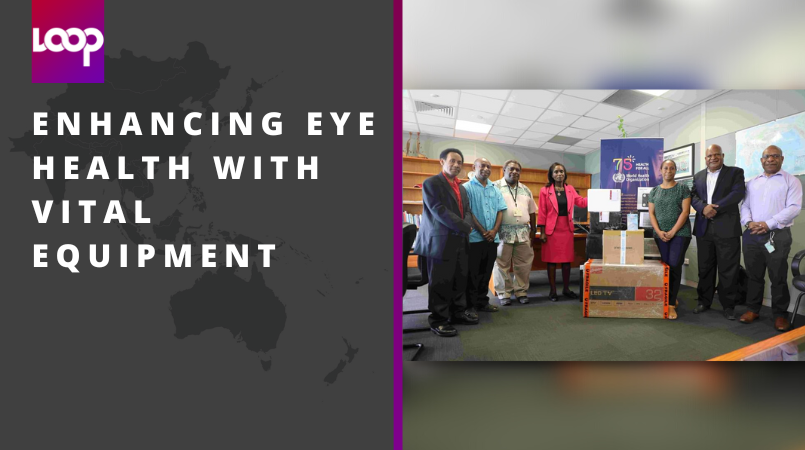
The World Health Organization (WHO) is continuing its support for the eye health care program in Papua New Guinea (PNG) by providing essential equipment to the Ophthalmology Department of Port Moresby General Hospital.
This initiative aims to enhance eye health care services in the region. The equipment being handed over includes several vital assistive technologies. One of the key items is a non-mydriatic fundus camera, which comes with accompanying software and a laptop.
Additionally, indirect and direct ophthalmoscopes, vision charts, and pinhole occludes are also part of the equipment package. These tools will contribute significantly to improving the diagnosis, treatment, and prevention of eye-related conditions.
Dr. Simon Melenges, the Chief Ophthalmologist at Port Moresby General Hospital, emphasized the significance of this support. He highlighted that diabetes is one of the leading causes of blindness worldwide, including PNG.
However, treating diabetic retinopathy, a common complication of diabetes, is challenging because patients often seek medical attention only after they have already lost their vision.
With the non-mydriatic fundus camera, the hospital can now screen patients for early signs of retinal changes, enabling timely intervention and preventing blindness.
Expressing his gratitude, Dr. Melenges extended his appreciation to the WHO for its continuous support in eye health care in PNG.
He further acknowledged the exceptional progress made by the National Prevention of Blindness Committee (PBL) of PNG, noting that it is regarded as the most robust committee in the Western Pacific region in terms of eye health initiatives.
This ongoing collaboration with the WHO reaffirms the commitment to achieving health equity and ensuring "Health for All" in the region.
